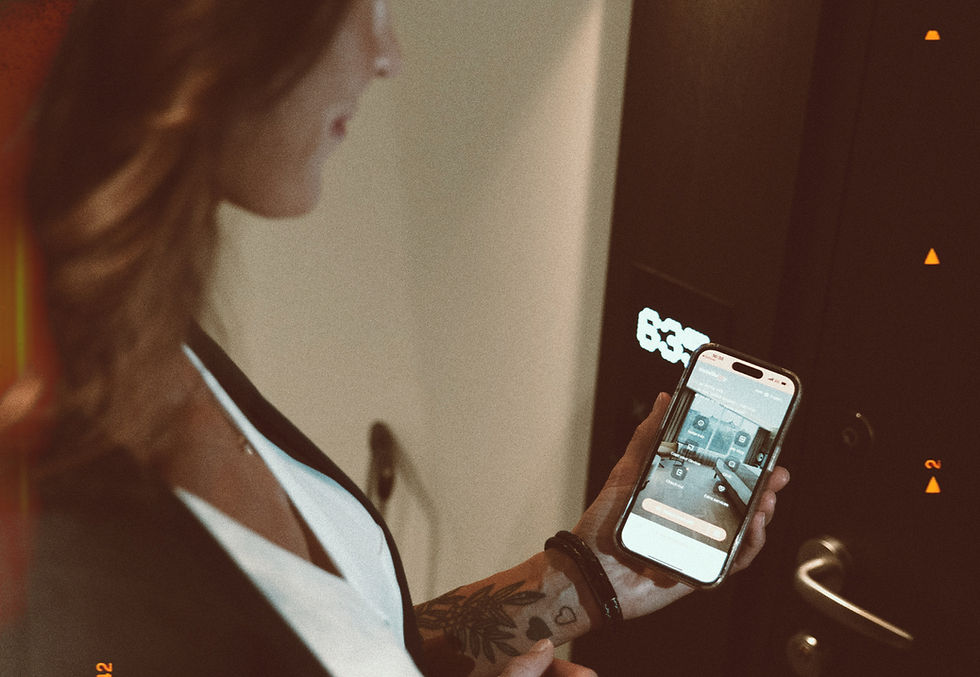The different types of apps: Native vs Hybrid vs Progressive Web app
- Kadi Saadlo

- May 10, 2021
- 4 min read
Updated: Feb 22, 2023
We have recently encountered many questions about the progressive web applications (PWA) and therefore we wanted to share some insights with you about different types of applications on the market and the pros and cons of each from the viewpoint of a hotelier.
There are three different types of apps: native, web and hybrid applications.
On the internet, we find many definitions and abbreviations for the word application – or app in short. But let’s keep it simple, with an app we mean a computer application that is designed to run on smartphones, tablets and other types of mobile devices.
Native Apps
Native apps live on the device and are accessed through icons on the device home screen. Native apps are installed through an application store (such as Google Play or Apple’s App Store). They are developed specifically for one platform, and can take full advantage of all the device features — they can use the camera, the GPS, the accelerometer, the compass, the list of contacts, and so on. They can also incorporate gestures (either standard operating-system gestures or new, app-defined gestures). And native apps can use the device’s notification system and can work offline.
Web Apps
Web apps are not real applications; they are really websites that, in many ways, look and feel like native applications, but are not implemented as such. Therefore, the app is programmed independently of the operating system. Unlike with a native app, it’s possible to work on several devices with one single web app. Web apps are created with programming languages such as HTML and CSS. They run inside a device’s own web browser via a URL. It’s not necessary to download and install a web app from an app store. Well-known examples are the shortcuts to Safari on iOS and the shortcut to Google Chrome in Android.
Hybrid Apps
Hybrid apps are part native apps, part web apps. (Because of that, many people incorrectly call them “web apps”). Like native apps, they live in an app store and can take advantage of the many device features available. Like web apps, they rely on HTML being rendered in a browser, with the caveat that the browser is embedded within the app.
Often, companies build hybrid apps as wrappers for an existing web page; in that way, they hope to get a presence in the app store, without spending significant effort for developing a different app. Hybrid apps are also popular because they allow cross platform development and thus significantly reduce development costs: that is, the same HTML code components can be reused on different mobile operating systems.
Choose the technology carefully
When choosing a new guest technology, the hotels should consider carefully, which type of application it will be run on. In the past most applications were native apps, that required the guest to download a specific application from their app store in order to use the smart features that the hotel provided. Nowadays more and more hotel tech providers opt for web applications, but there are still many who run their technology on a native app- it is especially common for mobile key providers.
People don’t want “dead apps”
It is a well known fact that many people are wary when it comes downloading new apps and especially if the application does not seem to have much use rather than using it once during a short stay. There are several studies that show that the amount of apps and the time of usage of these apps has dramatically decreased over the last years as the users are expecting a few big applications to perform their tasks. Technology is also making conventional apps redundant and entailing the need for new kinds of apps for a new world order. The progressive web apps show high conversion rates thanks to the simplicity and easier user access compared to native apps. The progressive web apps are also generally cheaper to develop and therefore come with a smaller price tag.
Downsides to PWA’s
The downsides to the PWA’s are that it is not possible to send push notifications through them and in order to notify a guest of a new campaign or a message, you would have to do that via text message or email. However as many people have their app notifications silenced or don’t always notice them, then the conventional ways of communication can be sometimes even more efficient. Also, the PWA’s require an internet connection to be able to work, while the native apps have the capability to work offline. Again, this is normally not a problem as most hotels nowadays offer a high-quality and -speed internet to their guests as part of the service and the connection problems are rather rare.
Conclusion
All in all we believe that PWAs is the best choice for hotels, especially if they desire to have a maximum guest engagement to their technology. Hotelbuddy is a progressive web application, which means that the application can be run in any web browser or from any device without the need to download anything from the app store. This makes it very simple for the hotel guest to use it and helps to achieve higher conversion and guest engagement.
If you are interested in finding out more about our solution then feel free to get in touch and we will be happy to offer a personal demo!
References:



